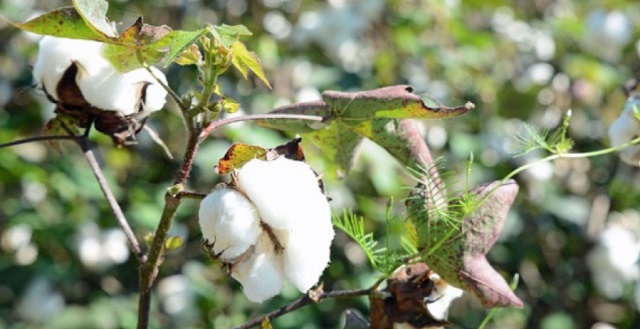
Kitgum, Uganda | THE INDEPENDENT | At least 80,000 households in East Acholi are expected to plant cotton this season, following the attractive price set last season.
In September 2021, the Cotton Development Organization (CDO) announced the indicative price of a kilogram of cotton at 2,000 Shillings to help regulate its farm gate price and eliminate the exploitation of farmers by middlemen.
However, three months after, the price shot up to 3,000 Shillings. The record high price that farmers had last seen ten years ago, excited those who had cotton while many who had abandoned the crop due to the low price the previous season regretted their decision.
Douglas Bhosopo, the seeds inspector at Uganda Cotton Ginners and Exporters Association, told Uganda Radio Network in an interview that due to the drought that ravaged cotton fields in 2020, only 17,000 farmers in the East Acholi districts of Kitgum, Lamwo, Pader, and Agago planted cotton.
Bhosopo adds that even those who planted cotton last season did not harvest much, because the crop was affected by drought countrywide, resulting in only about 30 million kilograms, which is about 33,069 metric tonnes.
The low yield is said to have increased the price of cotton per kilogram even more. According to Bhosopo, a kilogram now ranges from between 3,100-3,400 Shillings, something he says makes them estimate that up to 80,000 households in the four districts will plant cotton this season.
According to the Cotton Development Organization, cotton is the main source of income for some 250,000 households and remains one of Uganda’s third-largest export crops after coffee and tea.
However, statistics show that yields remain low at a maximum of 700 kilograms per acre, compared to the international average of 900 kilograms per acre. This trend has been blamed on erratic rains, input and credit constraints, and inadequate extension knowledge.
For this reason, Bhosopo says they have embarked on training farmers on good farming practices such as moisture retention in the soil, something he said, farmers were not equipped with. He also advised farmers to plant now, the fast-maturing variety which takes only three months, and yields more, even without the application of fertilizers and believes that if good practices are followed, a farmer can harvest more than 1000 kilograms per acre.
*****
URN
 The Independent Uganda: You get the Truth we Pay the Price
The Independent Uganda: You get the Truth we Pay the Price


